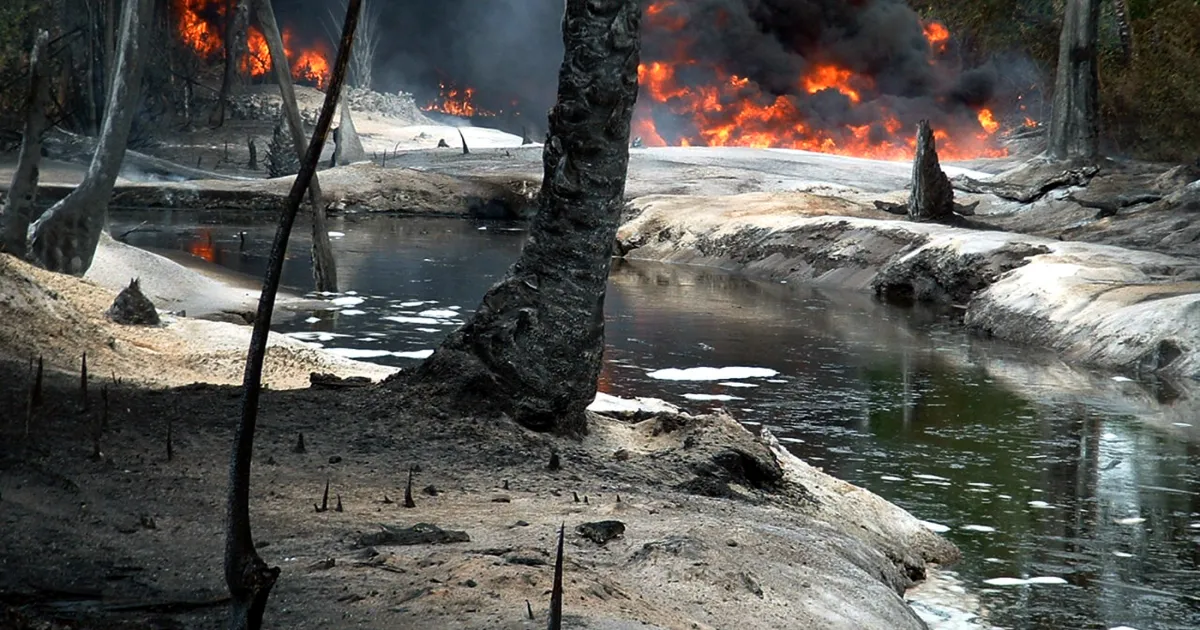
Nigeria’s Trans Niger oil pipeline has ruptured, resulting in a crude oil spill, according to a rights organization
A major oil pipeline that carries petroleum from onshore oilfields to the Bonny export terminal, Nigeria’s Trans Niger Pipeline, burst Thursday, causing oil to flood into the nearby B-Dere hamlet in Ogoniland, according to a humanitarian organization.
In two months, this is the second incident that has affected the Trans Niger Pipeline. Following a blast that resulted in a fire in March, the pipeline was closed.
According to Nnimmo Bassey, executive director of the Health of Mother Earth Foundation, the May 6 spill has not yet been halted, and the delayed response was “unconscionable” and demonstrated a lack of concern for the public.
“We are in a disaster zone and further disasters can erupt from even an accidental spark of fire,” stated the president. The fact that the spill from a week ago hasn’t been halted makes it clear that the government should concentrate on cleaning up Ogoniland rather than trying to drill new oil wells. The aging wells ought to be decommissioned and closed.
Despite decades of oil pollution, Ogoniland, one of Africa’s first regions to produce crude oil, has frequently seen its earnings go to the large oil corporations and the Nigerian government. Toxic waste and inadequate recompense have long been grievances of the local populace.
The explosion was confirmed by the Nigerian oil consortium Renaissance Group, which currently owns Shell’s old onshore business that runs the pipeline. The group also announced that a team of investigators has been sent to investigate the cause of the spill.
Bonny Light crude is exported from Nigeria, Africa’s largest oil producer, via two conduits, including the Trans Niger Pipeline (TNP), which has a daily capacity of about 450,000 barrels.
The TNP’s closure was not immediately apparent. When contacted for a statement, TNP did not immediately respond. However, if the outage lasts for a long time, its operators would have to declare force majeure on exports of Bonny Light.
In order to focus on deep-water operations, oil giants such as Shell, Exxon Mobil, Total, and Eni were compelled to sell their onshore and shallow-water fields in Nigeria due to a number of factors, including pipeline sabotage and crude theft.
In March, the international energy corporation Petroline and Nigerian exploration and production firms Aradel Energy, First E & P, Waltersmith, and ND Western, as part of the Renaissance corporation, successfully acquired Shell’s previous onshore holdings.
All Categories
Recent Posts
Tags
+13162306000
zoneyetu@yahoo.com



